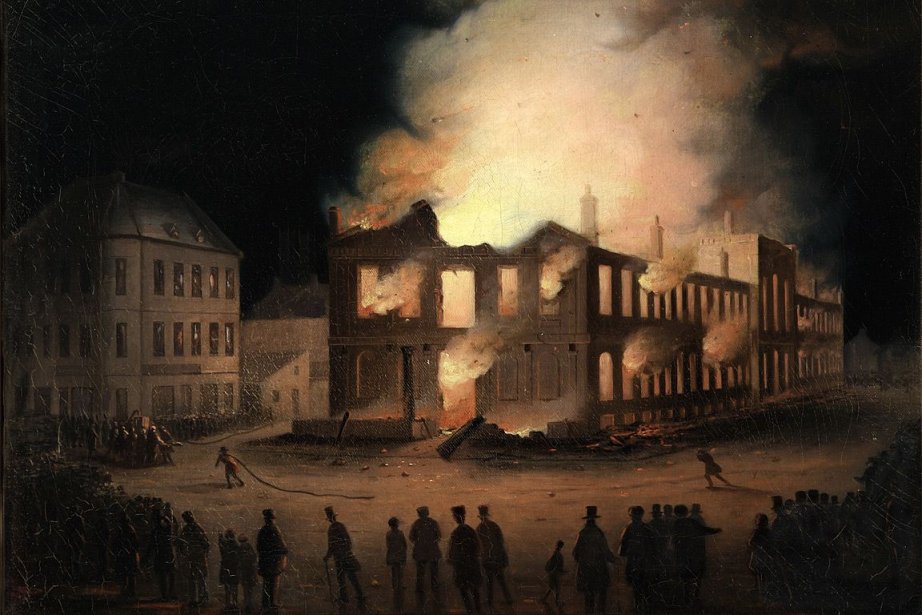

![]() by Shrillland » Wed Jul 31, 2013 10:12 am
by Shrillland » Wed Jul 31, 2013 10:12 am

![]() by Unicario » Wed Jul 31, 2013 10:36 am
by Unicario » Wed Jul 31, 2013 10:36 am

![]() by Luziyca » Wed Jul 31, 2013 11:12 am
by Luziyca » Wed Jul 31, 2013 11:12 am

![]() by Epraria » Wed Jul 31, 2013 11:42 am
by Epraria » Wed Jul 31, 2013 11:42 am

![]() by Ruridova » Wed Jul 31, 2013 2:28 pm
by Ruridova » Wed Jul 31, 2013 2:28 pm
A message from American Governor-General, Field Marshal John Colborne, 1st Baron Seaton
to the King and Parliament of England
I write you in urgency, and to ask for increased British attention towards multiple growing threats in these colonies, including numerous, riots, revolts, and separatist groups and movements. Elaboration into them does not need to occur, but I can assure you they are severe and it seems we may soon otherwise face a second American Rebellion.
In haste and with apologies
J. Colborne

![]() by Ruridova » Wed Jul 31, 2013 2:42 pm
by Ruridova » Wed Jul 31, 2013 2:42 pm

![]() by Luziyca » Thu Aug 01, 2013 12:42 am
by Luziyca » Thu Aug 01, 2013 12:42 am

![]() by Shrillland » Thu Aug 01, 2013 8:46 am
by Shrillland » Thu Aug 01, 2013 8:46 am
From the King of the United Kingdom of Great Britain and Northern Ireland to the Governor-General of British North America,
Honourable Baron,
I have received your letter, and will send 10,000 soldiers to the American Colonies to assist your armies in quelling these rebellions. I hope these will be of use to you.
Sincerely,
William IV,
King of the United Kingdom of Great Britain and Northern Ireland

![]() by Ruridova » Thu Aug 01, 2013 9:02 am
by Ruridova » Thu Aug 01, 2013 9:02 am


![]() by Luziyca » Thu Aug 01, 2013 9:20 am
by Luziyca » Thu Aug 01, 2013 9:20 am

![]() by Shrillland » Thu Aug 01, 2013 9:25 am
by Shrillland » Thu Aug 01, 2013 9:25 am

![]() by Ruridova » Thu Aug 01, 2013 9:39 am
by Ruridova » Thu Aug 01, 2013 9:39 am
Shrillland wrote:Halifax, Nova Scotia
August 26, 1834
Twenty ships, including some newer steamships arrived in Halifax Harbour today. These were the British forces that King William had promised the Americans. They now waited to meet the commander who had their orders. None of them knew yet of the disaster in Montreal that Papineau had caused. They only knew of his "92 resolutions" from February that demanded an elected, republican Government in Canada.

![]() by Luziyca » Thu Aug 01, 2013 9:47 am
by Luziyca » Thu Aug 01, 2013 9:47 am

![]() by Unicario » Thu Aug 01, 2013 10:23 am
by Unicario » Thu Aug 01, 2013 10:23 am

![]() by Epraria » Thu Aug 01, 2013 12:14 pm
by Epraria » Thu Aug 01, 2013 12:14 pm

![]() by Luziyca » Thu Aug 01, 2013 7:58 pm
by Luziyca » Thu Aug 01, 2013 7:58 pm

![]() by Shrillland » Fri Aug 02, 2013 10:14 am
by Shrillland » Fri Aug 02, 2013 10:14 am

![]() by Ruridova » Fri Aug 02, 2013 10:18 am
by Ruridova » Fri Aug 02, 2013 10:18 am

![]() by Shrillland » Fri Aug 02, 2013 10:29 am
by Shrillland » Fri Aug 02, 2013 10:29 am

![]() by Ruridova » Fri Aug 02, 2013 10:30 am
by Ruridova » Fri Aug 02, 2013 10:30 am
Shrillland wrote:Montreal, Quebec
September 7, 1834
A soldier of the British peacekeeping force stumbled upon an enormous protest led by followers of the Quebecois lawmaker Louis-Joseph Papineau. He accordingly went back to barracks and received some assistance, not knowing what was about to unfold.

![]() by Shrillland » Fri Aug 02, 2013 10:35 am
by Shrillland » Fri Aug 02, 2013 10:35 am

![]() by Ruridova » Fri Aug 02, 2013 10:51 am
by Ruridova » Fri Aug 02, 2013 10:51 am
Shrillland wrote:Montreal, Quebec
This protest was getting larger, and more violent. Colonel Smith however knew what to do, this was just like the Afrikaners he had to deal with back home. He ordered his men to present bayonets. For the moment, then suddenly a stone was thrown at a soldier..no one knew who threw it. In the excitement however, there was only one conclusion. The soldiers charged into the crowd.

![]() by Shrillland » Fri Aug 02, 2013 11:29 am
by Shrillland » Fri Aug 02, 2013 11:29 am

![]() by Luziyca » Fri Aug 02, 2013 11:47 am
by Luziyca » Fri Aug 02, 2013 11:47 am

![]() by Ruridova » Fri Aug 02, 2013 12:02 pm
by Ruridova » Fri Aug 02, 2013 12:02 pm

Shrillland wrote:Montreal, Quebec
The confused melee lasted all but 3 hours, but it was all that was needed to start a new war in the Americas. Casualties were actually fairly low, only about 25 British soldiers were killed, but this, combined with Native attacks, and an armoury raid in Virginia would lead to something enormous.
The Swamps of Florida
Though officially the province was still called East Florida, the creation of Mississippi had eliminated most of the old West Florida, with the exception of a few places such as Pensacola, and so the name Florida was used. And it was here that a Seminole chief named Osceola was becoming one of the Native American leaders that would fight to remain in his home. Although he and many others-including nations now siding with America-had appealed to Britain just a few years before and won, he knew the Americans would ignore anything that came out of London. Raids were now beginning throughout British North America.


Advertisement
Return to Portal to the Multiverse
Users browsing this forum: Sao Nova Europa
Advertisement